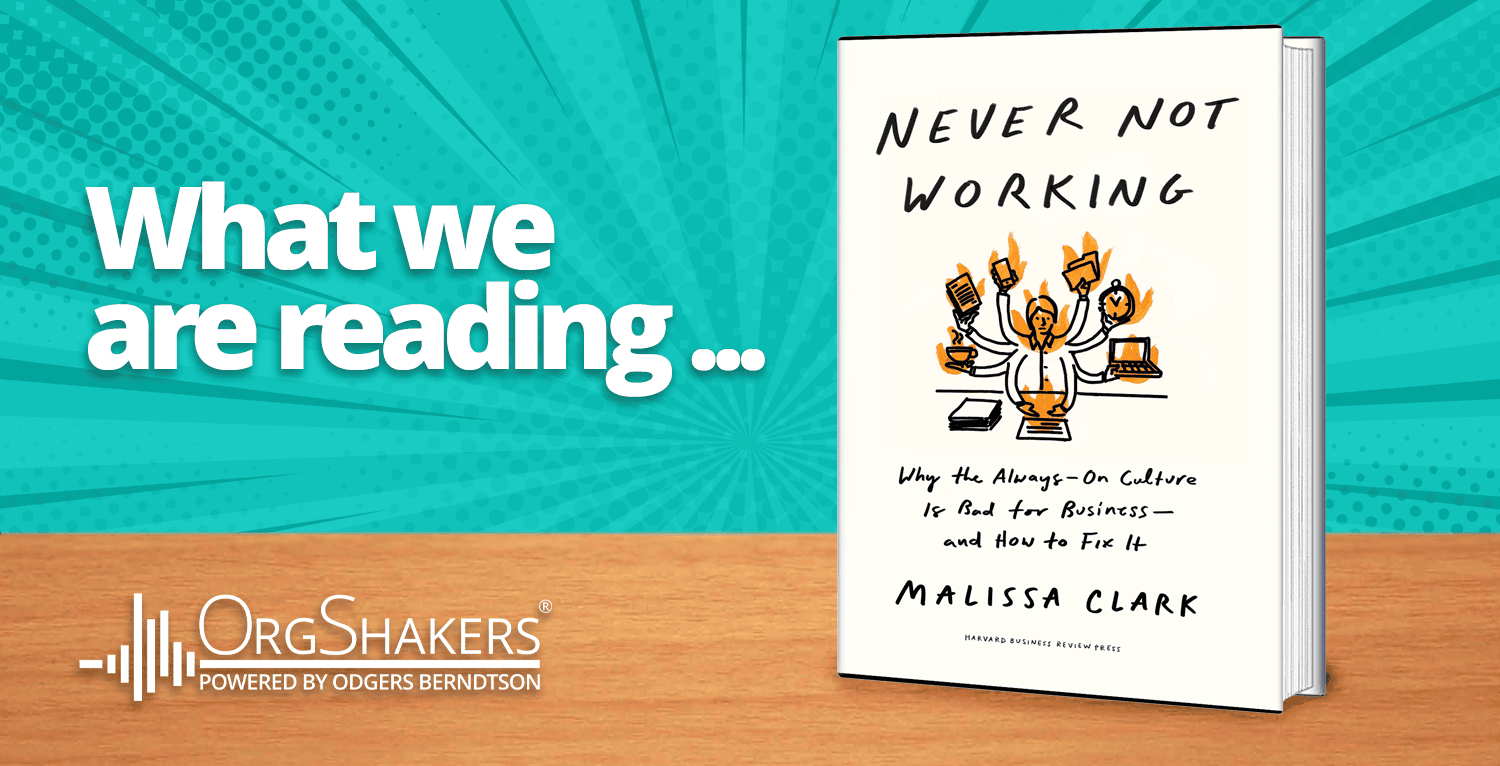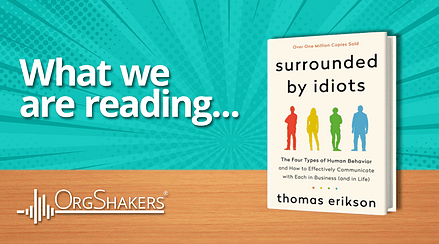Menu

What We’re Reading: Never Not Working by Malissa Clark
A brand-new study recently discovered that those employees who are ‘workaholics’ are more likely to become disengaged with their moral values. This got us thinking about how being a workaholic – whilst outwardly presenting as a super engaged and committed employee – actually has detrimental effects on overall productivity and wellbeing – so much so that it apparently throws off one’s moral compass, too. That’s why this month we have grabbed a copy of Malissa Clark’s latest book, Never Not Working: Why the Always-On Culture is Bad for Business–and How to Fix It.
Dr Malissa Clark is an associate professor of industrial-organizational psychology at the University of Georgia, and her research has particularly focused around workaholism, burnout, employee wellbeing, and organizational culture. Widely published in academic journals, Malissa has become a leading voice in the conversation around workplace mental health, and her first book, Never Not Working, translates her years of academic insights into accessible, actionable guidance.
In her book, Malissa starts by examining the toxic rise of workaholism in today’s professional world – where long hours and constant availability are not only normalized but celebrated. She argues that this ‘always-on’ culture is not a mark of dedication or success, but a harmful and unsustainable approach that damages individuals, teams, and entire organizations.
The book creates a clear distinction between healthy work engagement (feeling energized and fulfilled by work) and workaholism, which is defined by an uncontrollable inner compulsion to work excessively and obsessively. Malissa draws on over a decade of empirical research to show how workaholism is linked to burnout, anxiety, strained relationships, and reduced productivity, debunking the myth that more work automatically leads to better outcomes.
The book also goes on to address the systemic and cultural drivers of overwork: from glorified ‘hustle culture’ and performative busyness to poor leadership and the spread of technology that blurs the line between professional and personal life. She explores how these patterns have been intensified by the pandemic, remote work, and economic pressures.
Rather than simply critiquing the current state of affairs, Malissa offers a practical framework for change. She provides tools for leaders to recognize unhealthy behaviors in themselves and their teams, and she outlines steps organizations can take to shift away from overwork, such as setting boundaries, promoting recovery time, and measuring success based on output rather than hours being logged.
Ultimately, Never Not Working is a call to reimagine what productivity and success look like in the 21st century, arguing that sustainable work is not only better for employees, but better for business overall.
If you would like to discuss how we can help train your leaders and middle managers to identify the signs of workaholism, please get in touch with us today!
And in the meantime, be sure to grab yourself a copy of Never Not Working – it can be purchased here in the US and here in the UK.



